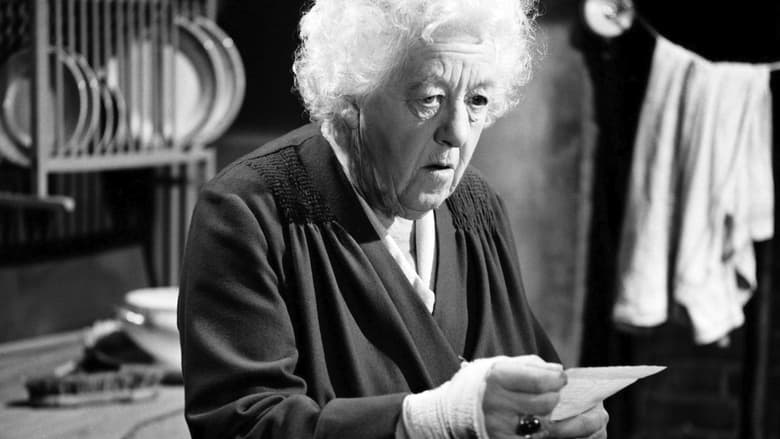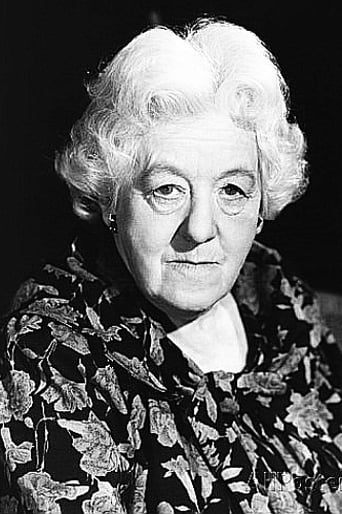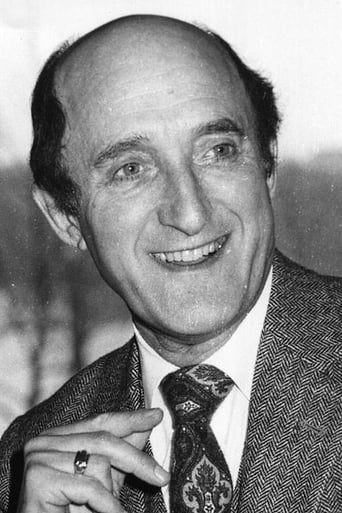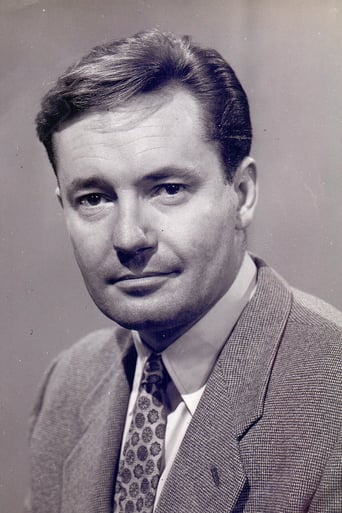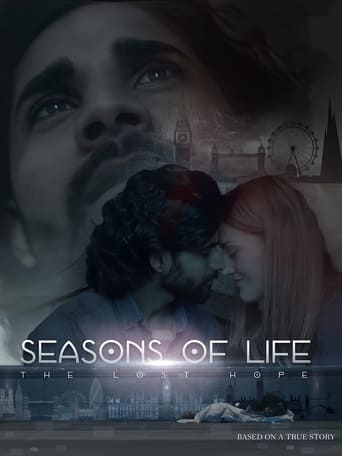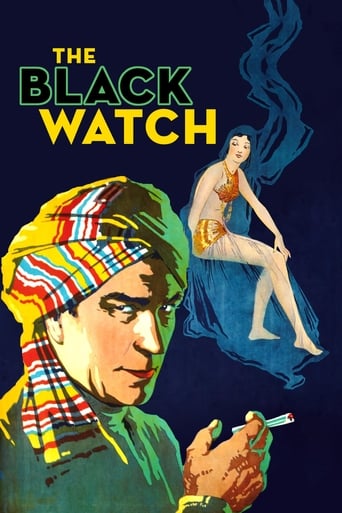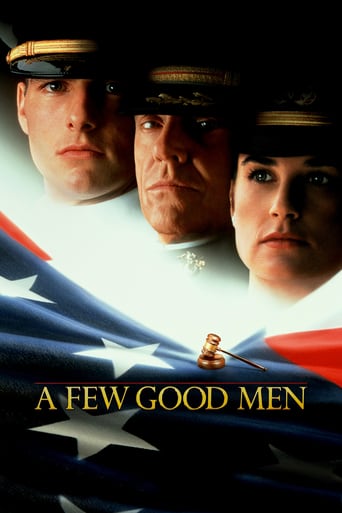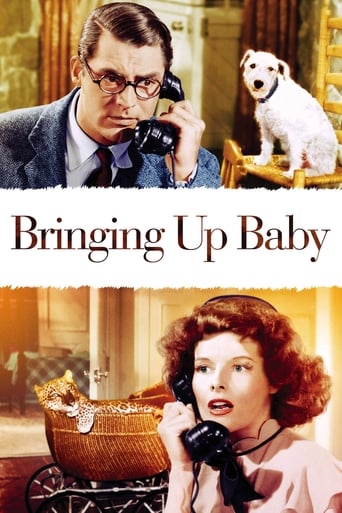Murder Most Foul (1965)
A murderer is brought to court and only Miss Marple is unconvinced of his innocence. Once again she begins her own investigation.
Watch Trailer
Cast


Similar titles
Reviews
I'm having a love/hate (mostly "love", though) relationship with these four Agatha Christie adaptations that George Pollock directed during the first half of the 1960s and starred Margaret Rutherford as the unsurpassable spinster-detective Miss Marple. Although Mrs. Rutherford was a great actress who put a lot of devotion into her role of Miss Marple, the character never should have been a headstrong, boisterous and intrusive woman. From the many books, I know Miss Marple as a timid and fragile little old lady who's always right and much more intelligent than everybody else, but she modestly remains at the sideline to solve the crimes. In the film series, she's more of an imposing hag and her intellect doesn't come so much from observation and deduction, but from nosing around and setting traps. Still, when I manage to ignore my own personal prejudices, these four whodunits (all starting with the word "murder") are admittedly very entertaining and well worth checking out. I even daresay that "Murder Most Foul" is the second best of the quartet. "Murder, She Said" is the cream of the crop, but this installment outshines "Murder at the Gallop" (originally a Hercule Poirot story, like this one) and "Murder Ahoy" (which wasn't even based on existing Agatha Christie material). The first 5-10 minutes of "Murder Most Foul" are downright brilliant and incredibly funny, with Miss Jane Marple stealing the show in court during a murder trial. First, because she's nonchalantly knitting on the jury's bench and thus irritating the honorable judge, and secondly because she, as only member of the twelve-headed jury, stubbornly refuses to find the accused guilty of murder. Of course we immediately know that Miss Marple is right and her "sabotaging" the trial provides her with the required extra time to investigate and solve the crime herself, much to the nuisance of the patient police inspector Craddock. She quickly deducts that the victim was a former stage actress and got killed because she tried to blackmail someone who wasn't too impressed. Miss Marple infiltrates into the stage actors' association of the eccentric Driffold Cosgood, as the murdered woman played with them during the early fifties. The killer helps her to reduce the list of potential suspects, however, because more members of the same association turn up dead. The mystery aspects are overall compelling and there are a few inventive red herrings. Like in the other installments, the middle-section somewhat drags and feels overlong. The comical chemistry between Rutherford and her real-life husband Stringer Davis has worn out since the first film, but luckily there's always a sublime supportive cast, this time including Ron Moody and Meg Jenkins.
A year after winning the best supporting actress Oscar for the memorable "The VIP's," Margaret Rutherford returned to portraying the memorable maiden sleuth, Jane Marple. Rutherford was an absolute joy to watch. Her facial expressions and sunken chin made her perfect to play this female crime investigator.The problem with the film is basically in its writing. Marple manages to get a hung jury with a mistrial declared in the mysterious death of a woman.She then joins the troupe of actors where the victim had been involved. Ron Moody, so memorable as Fagin, 4 years later in "Oliver!," plays the head of the group.Miss Marple leaves nothing unturned in her attempt to find the culprit of the crime. It just isn't a very interesting film.
"Murder most foul, as in the best it isBut this most foul, strange and unnatural" (Ghost in William Shakespeare's HAMLET) Having overwhelmed so many viewers as a captivating female sleuth in the two preceding MGM movies, with the third movie of the series, Miss Marple humorously proves the fact that women can indeed have 'superior minds' (not only to the inspectors' embarrassment). While figuring out the extraordinary mysteries, within the foggy reality of the hangman's resting place, premonitions cannot take over: a murder most foul is still to be investigated in the most unpredictable spots while 'Milchester cops' dig in the dusty past. Disguised within the 'gray' existence, they help us penetrate the most inaccessible spheres of criminal knowledge. How? Based upon Agatha Christie's novel MRS McGINTY'S DEAD, MURDER MOST FOUL offers a display of the most absorbing features developed within the genre in its initial, fresh form. The very opening scene creates a unique impression: Mrs McGinty is found hanged by one cop. Scattered banknotes and a crushed rose are meaningful, almost ghostly objects of significance. But there is something more, or rather someone more: Harold Taylor, the only person caught at the scene. What haunts him from the moment are suspicion and...formalities of legal proceedings. The courtroom sees the case being dealt with in the usual boring-to-death manner. 'His honor' rather tends to have a taste for dry martini than to get absorbed in that seemingly open-and-shut case. Yet, a real surprise evokes when a seemingly ordinary woman, who sits in her jury box and knits in order to concentrate, catches the attention of us all - the lovable Miss Jane Marple (Margaret Rutherford) - a nuisance for simplified mediocrity but delight for eagerness and creativity. As the verdict is being postponed for a later date of a retrial, she decides to dig in that case herself.Much ventured and what gained? Time and patience show that this woman gains more than the most skillful chief inspectors would probably see in their most daring sleep. But what a weird stage of investigation! The theater! Among the troupe of Cosgood Players, where Hamlet's dilemmas and experiences have an impact on many players' lives, Miss Marple makes important discoveries about the behavior of people around her. As the murders tend to go in pairs or even threes, she makes us realize that they are all 'one and the same'...In MURDER MOST FOUL, like in each other part, a true delight to watch is Dame Margaret Rutherford in the role of her life, a truly captivating character Agatha Christie created. Her skillful performance combines humor with mystery in her lines and gestures. Her interpretation of the character is simply unique and timeless. All shortage can be filled deeply with her heartfelt acting by making Miss Marple a very humane, sympathetic, lovable and professional. Some of her best lines include: "I am definitely no angel (...) A bachelor not staying for tea (...) Women sometimes have superior minds." The pinnacle of ambiguity appears at the perfectly acted scene when Miss Marple mixes up her lines during the rehearsal of the performance and says "Mrs McGinty's dead" instead of "Rona LaPlante's dead." The height of humor is, perhaps, at Miss Marple's visit at one Mrs Thomas's and her 'rheumatism' exercises. But she truly leaves us stunned by the way she handles the recitation of the poem "The Killing of Dan McGrew." - a must see in the original!SUPPORTING CAST: Apart from the mainstays in all "Murder" parts, including Charles Tingwell as Inspector Craddock and Stringer Davis as Mr Stringer, MURDER MOST FOUL can boast of some brilliant British cast of the time who prove a high caliber of acting skills. Great credit to Ron Moody who portrays Driffold Cosgood, actor/manager of the theater troupe. He portrays a poignant character whose innocence lies beyond questioning and the character whose vibrant, artistic nature is bound to give in as the investigation proceeds. Yet, Mr Moody crafts it exceptionally. An important name among the supporting cast is Francesca Annis but the interesting and haunting performance is given by Alison Seebohm as Eva, a rather ghostly, removed character. She is a sort of nightmarish dream by a sleepwalker who highlights the supernatural blending mystery with insanity. But even her unhealthy and peculiar manners cannot terrify the marble nature of Miss Marple...What can be repeated about the merits of MURDER MOST FOUL from the previous MGM productions on Miss Marple are George Pollock's entertaining and satisfactory direction, Ron Goodwin's enchanting music score, Desmond Dickinson's dazzling cinematography. The director of photography nicely highlights the moments of tension, mystery, undertones of characters' mental states. The backbone storm when the conspiracy of silence makes Miss Marple's task harder and people around her more ghostly and unavailable, is no exception.Indeed, Miss Marple is truly no angel but she is, undeniably, the most memorable character among Agatha Christie's characters. But it is, above all, the charismatic Dame Margaret Rutherford who makes us remember Miss Marple.Much having been ventured, much is gained...injuries are not too serious, joyful promotion and thoughts make the treatment time more pleasant and the 'Milchester Players' as true sleuths may introduce yet another plot, may open yet another investigation. Since this is the end of the very case, murder is always without end...
Uh oh! Miss Jane Marple on jury duty! Because she was the lone juror who prevented a unanimous verdict, a mistrial was declared and a new trial ordered in this case of murder that takes her back on the stage to investigate. She must join a small theater group to find the real killer of Mrs. McGinty's. (This is based on Agatha Christie's "Mrs. McGinty's Dead.")Rutherford is great and this cast is peppered with even more kooky and interesting characters than usual, even if Americans don't know the actors involved. But, the director of the group is Ron Moody, from the musical "Oliver." This makes me want to see other Christie stories made into film, particularly those with Peter Ustinov and Helen Hayes as the sleuths, but while Hayes has always been a favorite actress of mine, I fear those other mysteries, because they don't have Rutherford in them, they just won't be the same.So, sit back and bask in Dame Margaret Rutherford in her element as Christie's famed sleuth Miss Marple, and enjoy her over and over again.


